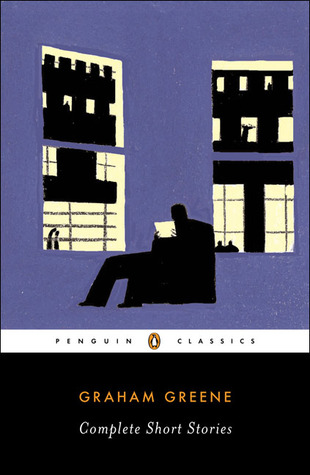What do Graham Greene and G. K. Chesterton have in common? For starters, they are both British. They also write with a strong Catholic influence – Greene having a strained relationship with the church but never leaving and Chesterton seeming to fully embrace the church. They now also have something else in common: both of them have short story collections that are owned by me.
The first story in the Graham Greene collection, Complete Short Stories, is “The Destructors”. The story could be considered the flip side to Willa Cather’s great story “The Enchanted Bluff”. While I would consider the Cather story better, Greene uses a certain unsentimental humor to make “The Destructors” enjoyable and worth reading.

A car-park gang of boys, ranging in age from nine to about fifteen, put together a plan with the leadership of “T” (short for Trevor, but apparently Trevor wasn’t a cool enough name), a boy new to the neighborhood and a threat to Blackie (that was a cool enough name), the gang’s current leader. The title gives the reader a clue as to the nature of this plan. The plan might actually be considered a dream in the nature of the dreams and plans of the boys in “The Enchanted Bluff”; however, this dream eventually comes to fruition. Is this a good thing? Well, I’ll just let you read the story and decide for yourself.
The collection of Chesterton stories I have is The Complete Father Brown Stories. The first one is called “The Blue Cross”. In the nature of mysteries, these stories have strong similarities to Sir Arthur Conan Doyle’s more well-known Sherlock Holmes mysteries. This first one is told from the perspective of French detective, Valentin, arriving in London chasing his arch nemesis, Flambeau. As Valentin tracks down the criminal, he expresses thoughts to himself about reason and doubt. He begins to become suspicious of two priests. Ultimately, through one of the priests, Father Brown, Valentin catches Flambeau.

I especially enjoyed the parting thoughts Father Brown leaves for both Valentin and Flambeau. Valentin asks Father Brown how, as a priest, he knows so much about the criminal mind. Father Brown indicates that years of listening to confessions has made him an expert in human nature – particularly the dark side. Flambeau, pretending to be a priest in order to steal a valuable ornamental cross, wonders what gave himself away to Father Brown. At one point in the story, Flambeau (as a priest) talks of God as being above human reason. Father Brown lets Flambeau know he ought not attack reason – it’s “bad theology” and it was this “bad theology” that gave the criminal away.
I have the feeling that Graham Greene’s stories will utilize the “anti-hero” with a moral ambiguity in his characters. Chesterton’s Father Brown will likely have a more focused moral compass. I’m looking forward to reading more of each.









